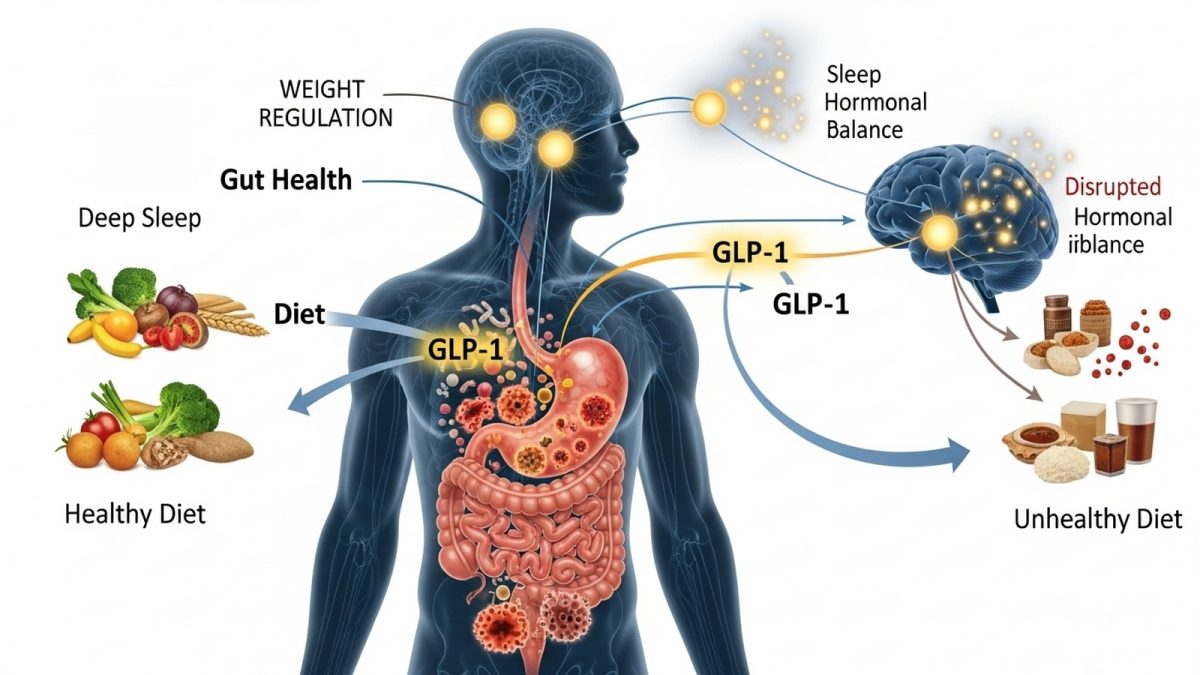Unlock Your Weight Loss Potential: How Diet, Sleep & Gut Health Boost Your GLP-1 Naturally
)
With GLP-1 medications like semaglutide dominating the weight loss conversation, many Aussies are curious about natural ways to support this powerful hormone. Forget relying solely on medication – experts are increasingly highlighting the crucial role of diet, sleep, and gut health in boosting your GLP-1 levels and regulating your weight.
What is GLP-1 and Why Does it Matter?
GLP-1 (Glucagon-like peptide-1) is a hormone produced in your gut that plays a vital role in regulating blood sugar, slowing down digestion, and – importantly – suppressing appetite. It’s a key player in metabolic health and weight management. The popularity of GLP-1 receptor agonists (GLP-1 RAs) like semaglutide underscores its importance, but understanding how to naturally enhance GLP-1 function is crucial for long-term health and sustainable weight loss.
The Gut-GLP-1 Connection: A Thriving Microbiome is Key
Your gut microbiome – the trillions of bacteria living in your digestive system – has a profound impact on GLP-1 production. A diverse and healthy gut microbiome encourages the release of GLP-1. So, how do you foster a thriving gut?
- Prebiotics: These are essentially food for your good gut bacteria. Think onions, garlic, leeks, asparagus, and bananas.
- Probiotics: Found in fermented foods like yogurt (look for live and active cultures), kefir, sauerkraut, and kimchi, probiotics introduce beneficial bacteria directly to your gut.
- Limit Processed Foods: These often contain ingredients that disrupt the gut microbiome and reduce GLP-1 production.
Dietary Powerhouses for GLP-1: Protein & Fibre
Certain foods are particularly effective at stimulating GLP-1 release:
- Protein: Studies show that protein-rich meals trigger a greater release of GLP-1 than carbohydrate-heavy ones. Lean meats, fish, eggs, beans, and lentils are excellent choices.
- Fibre: Soluble fibre, in particular, slows down digestion and promotes GLP-1 release. Good sources include oats, fruits, and vegetables.
Sleep: The Often-Overlooked Factor
Consistent sleep deprivation wreaks havoc on your hormones, including GLP-1. Aim for 7-9 hours of quality sleep each night to optimise your metabolic health and support healthy GLP-1 function. Poor sleep can increase hunger hormones and decrease satiety, making weight management even more challenging.
Putting it All Together: A Holistic Approach
The good news is that you don't have to choose between medication and a healthy lifestyle. In fact, combining lifestyle changes with GLP-1 medication (under medical supervision) can yield even better results. By prioritising gut health, adopting a protein-rich, fibre-filled diet, and ensuring adequate sleep, you can naturally boost your GLP-1 levels, regulate your appetite, and pave the way for sustainable weight management. Consult with your doctor or a registered dietitian to create a personalised plan that works for you.





